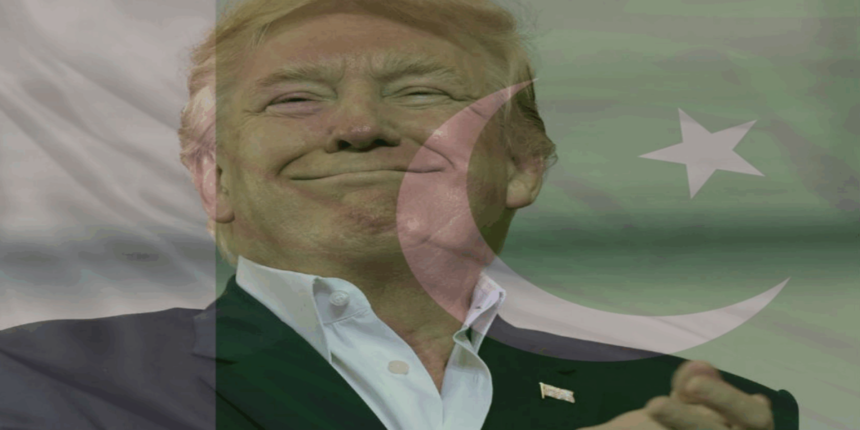Pakistan has nominated former U.S. President Donald Trump for the 2026 Nobel Peace Prize, just days after his private luncheon with Pakistan’s Chief of Army Staff, General Asim Munir, at the White House.
Though controversial, Trump’s nomination is seen by analysts as a calculated diplomatic gesture aimed at reshaping Pakistan’s global image and regaining strategic relevance amid shifting geopolitical dynamics in South Asia and the Middle East.
Read More: “I Love Pakistan”: Trump Lauds COAS Munir in White House Briefing
The decision raised eyebrows globally, given Trump’s polarising legacy marked by aggressive foreign policy, trade wars, and military posturing. However, Pakistani officials suggest the nomination reflects an effort to influence U.S.–Pakistan relations, especially as Islamabad seeks international support amid its economic crisis, geopolitical isolation, and regional security threats.
The move coincides with growing tensions between Iran and Israel, the continued Kashmir conflict, and Pakistan’s ongoing efforts to position itself as a regional peace broker.
Read More: Israel Faces Shortage of Arrow Missiles Amid Rising Regional Tensions
The Nobel nomination came just days after Trump hosted General Asim Munir in an unprecedented private luncheon at the White House — a rare event, given that Munir is a serving military official and not a political leader.
Many observers interpreted this meeting as a signal of renewed U.S. interest in Pakistan, particularly as the country repositions itself in the aftermath of America’s withdrawal from Afghanistan and India’s rise as a strategic partner for the West.
Reaffirming Pakistan’s Relevance
Analysts believe the nomination serves several strategic objectives:
-
Re-establishing relevance in Washington’s foreign policy calculus.
-
Countering India’s regional influence, especially in Iran and Afghanistan.
-
Engaging Trump’s ego in hopes of extracting future diplomatic or economic concessions.
-
Highlighting unresolved global conflicts, like Kashmir and Palestine.
By extending symbolic support to Trump, Pakistan seeks to create diplomatic capital with an unpredictable yet powerful global figure.
Read More: 10th Iranian Missile Strike Hits Israel, Tensions Surge
Pakistan has also positioned itself as a potential mediator in the Iran-Israel conflict, openly supporting Iran’s position during a recent UN Security Council session, while simultaneously engaging the U.S. behind closed doors.
The meeting between Munir and Trump is believed to have included discussions on regional de-escalation, especially after Israel’s recent bombing of Iran’s Natanz nuclear facility and threats against Supreme Leader Ayatollah Ali Khamenei.
The official statement accompanying the nomination referenced the Kashmir dispute, reiterating Pakistan’s position that lasting peace in South Asia is impossible without a resolution.
This comes after escalating tensions, with India launching strikes on Pakistani territory following incidents in Indian-occupied Kashmir. Pakistani officials believe international silence, particularly from the EU and U.S., has emboldened India.
Low-Cost, High-Impact Diplomacy
The Trump nomination is also being described as a cost-effective soft power tactic. Unlike high-stakes trade deals or military agreements, a Nobel nomination requires little but can garner media attention, strategic goodwill, and place Pakistan back into Western diplomatic discourse.


